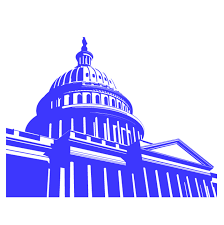The Vital Role of Legislature in Shaping Society: A Comprehensive Overview

The Role of Legislature in Shaping Society
Legislature, as a fundamental branch of government, plays a crucial role in shaping and governing society. It is responsible for making laws, overseeing their implementation, and representing the interests of the people. The legislative body, whether at the national or local level, serves as a forum for debate, negotiation, and decision-making on matters that affect the lives of citizens.
Making Laws
One of the primary functions of the legislature is to create laws that reflect societal values, address pressing issues, and regulate various aspects of public life. Through a democratic process involving elected representatives, laws are proposed, debated, amended, and eventually enacted to guide behavior and ensure order within society.
Checks and Balances
The legislature acts as a check on the executive branch by scrutinizing government actions, approving budgets, and holding officials accountable for their decisions. This system of checks and balances helps prevent abuse of power and ensures that no single branch dominates the others.
Representation
Members of the legislature represent diverse constituencies with varying needs and interests. Through dialogue with constituents and advocacy on their behalf, legislators strive to address concerns, promote equity, and advance policies that benefit the greater good.
Promoting Public Debate
The legislative process fosters public debate on important issues facing society. By allowing different viewpoints to be heard and considered, lawmakers can arrive at informed decisions that reflect a broad spectrum of perspectives and values.
Adapting to Change
In a constantly evolving world, the legislature plays a vital role in adapting existing laws to new circumstances. By revising outdated regulations, responding to emerging challenges, and enacting progressive reforms, lawmakers help ensure that legal frameworks remain relevant and effective.
Conclusion
Legislature stands as a cornerstone of democratic governance by enacting laws that uphold justice,
promote welfare,
and safeguard rights.
Its commitment to transparency,
accountability,
and responsiveness
is essential for maintaining a just
and equitable society where all individuals can thrive.
The Essential Role of Legislature: 8 Key Benefits for Society and Governance
- 1. Legislature creates laws that guide behavior and maintain order in society.
- 2. It serves as a check on the executive branch, preventing abuse of power.
- 3. Legislators represent diverse constituencies and advocate for their interests.
- 4. The legislative process fosters public debate on important societal issues.
- 5. Lawmakers adapt existing laws to changing circumstances and emerging challenges.
- 6. Legislature promotes transparency and accountability in government actions.
- 7. It ensures that policies reflect the values and needs of the population.
- 8. Through democratic processes, legislature upholds justice and protects individual rights.
Challenges of the Legislative Process: Delays, Gridlock, and Influence
- Legislature can be slow to respond to urgent issues due to bureaucratic processes and lengthy debates.
- Political gridlock and partisan disagreements within the legislature can hinder progress on important legislation.
- Special interests and lobbying efforts may influence lawmakers’ decisions, leading to biased or unfair outcomes.
- Laws passed by the legislature may not always reflect the will of the majority, potentially disenfranchising certain groups.
- Inefficiencies in the legislative process can result in redundant or contradictory laws that create confusion and inefficacy.
1. Legislature creates laws that guide behavior and maintain order in society.
One of the key benefits of legislature is its ability to create laws that serve as guidelines for behavior and uphold order in society. Through a democratic process of debate and decision-making, legislators enact regulations that establish boundaries, promote accountability, and ensure the well-being of individuals within the community. These laws not only define acceptable conduct but also provide a framework for resolving disputes, protecting rights, and fostering a harmonious coexistence among diverse members of society. By setting clear expectations and consequences, the legislature plays a vital role in maintaining a functional and structured environment where citizens can live, work, and interact with confidence in the rule of law.
2. It serves as a check on the executive branch, preventing abuse of power.
One significant advantage of the legislature is its role as a check on the executive branch, serving as a critical safeguard against the abuse of power. By scrutinizing government actions, approving budgets, and holding officials accountable, the legislature ensures that no single branch of government becomes too powerful or operates without oversight. This system of checks and balances is essential for maintaining a healthy democracy, promoting transparency, and upholding the rule of law.
3. Legislators represent diverse constituencies and advocate for their interests.
Legislators play a crucial role in representing the diverse constituencies they serve and advocating for their interests within the legislative process. By engaging with constituents, understanding their needs, and voicing their concerns in the decision-making process, legislators ensure that a wide range of perspectives are considered. This representation helps to promote inclusivity, equity, and fairness in policy-making, ultimately leading to laws that better reflect the values and aspirations of the communities they represent.
4. The legislative process fosters public debate on important societal issues.
The legislative process serves as a catalyst for public debate on critical societal issues, providing a platform for diverse perspectives to be heard and considered. Through open discussions, citizens have the opportunity to voice their opinions, share insights, and contribute to the decision-making process. This fosters a more informed and inclusive dialogue that helps lawmakers understand the concerns and priorities of the community they represent, leading to well-rounded policies that reflect the needs and values of society as a whole.
5. Lawmakers adapt existing laws to changing circumstances and emerging challenges.
One significant advantage of the legislature is its ability to adapt existing laws to changing circumstances and emerging challenges. Through a deliberative and democratic process, lawmakers can review, amend, and update legislation to ensure that it remains relevant and effective in addressing the evolving needs of society. This proactive approach allows for the timely response to new developments, technological advancements, social changes, and unforeseen challenges, ultimately enhancing the legal framework’s capacity to protect rights, promote justice, and maintain order in a dynamic world.
6. Legislature promotes transparency and accountability in government actions.
Legislature promotes transparency and accountability in government actions by providing a platform for open debate, scrutiny, and oversight of policies and decisions. Through public hearings, legislative sessions, and the publication of proceedings, citizens can gain insight into the workings of their government and hold officials accountable for their actions. This transparency helps build trust between the government and the people it serves, ensuring that decisions are made in the public interest and with due consideration for the well-being of society as a whole.
7. It ensures that policies reflect the values and needs of the population.
The legislature plays a crucial role in ensuring that policies reflect the values and needs of the population. By serving as a representative body that engages with diverse constituencies, lawmakers have the opportunity to understand the concerns, priorities, and aspirations of the people they represent. Through open dialogue, public hearings, and community engagement, legislators can craft policies that align with the values and address the pressing needs of society. This inclusive approach helps promote transparency, accountability, and responsiveness in governance, ultimately leading to policies that are more reflective of the collective interests and well-being of the population.
8. Through democratic processes, legislature upholds justice and protects individual rights.
Through democratic processes, the legislature upholds justice and protects individual rights by enacting laws that reflect the values and principles of society. By engaging in open debate, considering diverse perspectives, and adhering to established procedures, lawmakers ensure that the rights of all citizens are respected and upheld. This commitment to justice not only safeguards individual liberties but also reinforces the foundation of a fair and equitable society where the rule of law prevails.
Legislature can be slow to respond to urgent issues due to bureaucratic processes and lengthy debates.
The con of legislature lies in its tendency to be slow in addressing urgent issues, often hindered by bureaucratic processes and prolonged debates. The intricate framework of legislative procedures, including committee reviews, amendments, and voting protocols, can impede swift action on pressing matters that require immediate attention. As lawmakers navigate through layers of deliberation and negotiation, the pace of decision-making may not align with the urgency of certain crises or emerging challenges, potentially resulting in delays that impact the timely resolution of critical issues affecting society.
Political gridlock and partisan disagreements within the legislature can hinder progress on important legislation.
Political gridlock and partisan disagreements within the legislature can significantly impede the advancement of crucial legislation. When opposing political parties are unable to find common ground or compromise on key issues, essential laws and policies may be delayed or even blocked altogether. This lack of cooperation can lead to inefficiency, frustration among constituents, and a failure to address pressing societal challenges in a timely manner. Ultimately, political gridlock within the legislature undermines the democratic process and hampers the ability to enact meaningful reforms that benefit the public interest.
Special interests and lobbying efforts may influence lawmakers’ decisions, leading to biased or unfair outcomes.
Special interests and lobbying efforts have long been a contentious issue within the realm of legislature. The influence of powerful groups and individuals can sway lawmakers’ decisions, potentially resulting in biased or unfair outcomes that prioritize the interests of a select few over the broader public good. This dynamic can undermine the democratic process, erode trust in government institutions, and perpetuate inequalities within society. Vigilance and transparency are essential to mitigate the negative impact of special interests on legislative decision-making and ensure that laws are crafted in the best interest of all citizens.
Laws passed by the legislature may not always reflect the will of the majority, potentially disenfranchising certain groups.
One significant con of the legislature is that laws passed may not always align with the will of the majority, leading to the potential disenfranchisement of certain groups within society. In a democratic system, the principle of majority rule is essential, but there are instances where minority voices or marginalized communities may not have adequate representation or influence in the legislative process. This can result in laws that disproportionately impact vulnerable populations and fail to address their specific needs and concerns, highlighting a limitation in the ability of the legislature to fully reflect and protect the interests of all members of society.
Inefficiencies in the legislative process can result in redundant or contradictory laws that create confusion and inefficacy.
Inefficiencies in the legislative process can lead to the creation of redundant or contradictory laws, which ultimately contribute to confusion and inefficacy within the legal system. When laws overlap or conflict with one another, it becomes challenging for individuals, businesses, and government agencies to navigate and comply with the regulations. This lack of clarity can hinder effective governance, impede justice, and create unnecessary burdens on society as a whole. Addressing these inefficiencies is essential to streamline the legislative process and ensure that laws are clear, consistent, and conducive to the well-being of the community they serve.



